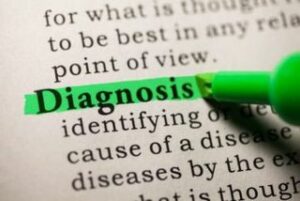It’s no secret that there is a strong connection between bipolar disorder and post-traumatic stress disorder (PTSD). In fact, according to the National Institute of Mental Health, as many as 50% of people with bipolar disorder also have PTSD. But what is it about this connection that makes it so prevalent? And what can be done to help those who suffer from both conditions? In this blog post, we will explore the relationship between PTSD and bipolar disorder, and discuss some ways to get help for those who are struggling.
Contents
What Are PTSD And Bipolar?
PTSD and bipolar are both mental disorders that can have a profound impact on an individual’s life. PTSD, or post-traumatic stress disorder, is a condition that can develop after exposure to a traumatic event. Symptoms of PTSD can include flashbacks, intrusive thoughts, and avoidance behaviors.
Bipolar disorder is characterized by periods of both mania and depression. During a manic episode, an individual may experience symptoms such as euphoria, decreased need for sleep, and grandiose thinking. In contrast, during a depressive episode, an individual may feel hopelessness, fatigue, and low self-worth.
While the exact cause of either disorder is not known, it is believed that both PTSD and bipolar disorder are caused by a combination of genetic and environmental factors.
PTSD and bipolar disorder can both have a significant impact on an individual’s life. If you or someone you know is struggling with either condition, it’s important to seek professional help.
How Is PTSD Connected to Bipolar Disorder?
There is believed to have a connection between PTSD and bipolar disorder, with some studies showing that people who suffer from PTSD are more likely to develop bipolar disorder than those who don’t. It’s thought that the two conditions may share a common underlying cause, such as genetics or brain chemistry.
There is also evidence that trauma can trigger manic episodes in people with bipolar disorder. In fact, many people with bipolar disorder report experiencing their first manic episode after a traumatic event.
According to studies, PTSD and bipolar actually share a number of symptoms, including:
- Intrusive thoughts
- Flashbacks
- Nightmares
- Sleep problems
- Irritability
- Anger
- Impulsivity
- Difficulty concentrating
These symptoms are common in both conditions, which is one of the reasons why it can be so difficult to distinguish between them. So, the connection that how PTSD and bipolar are linked is still being studied. If you are experiencing any of the symptoms mentioned above, please don’t hesitate to seek help from a mental health professional.
PTSD and bipolar disorder can both be extremely debilitating conditions, but there is hope. With proper treatment, many people are able to live full and productive lives.
Can PTSD Cause Bipolar Disorder?
 It is believed that PTSD can cause bipolar disorder. Studies show that people with PTSD are more likely to develop bipolar disorder than those without PTSD. There are many factors that may contribute to the development of bipolar disorder, including:
It is believed that PTSD can cause bipolar disorder. Studies show that people with PTSD are more likely to develop bipolar disorder than those without PTSD. There are many factors that may contribute to the development of bipolar disorder, including:
- genetic predisposition
- environmental factors
It is important to note that not everyone who experiences trauma will develop PTSD or bipolar disorder. For example, if you have a family member with bipolar disorder, you may be more likely to develop the condition. However, this does not mean that you will definitely develop bipolar disorder.
The causes of bipolar can be stressful events, such as:
- the death of a loved one
- divorce
- job loss
And, PTSD is the reliving of a traumatic event that can trigger manic or depressive episodes. So, there is evidence that suggests that PTSD can cause bipolar disorder. Because it is believed that PTSD can cause bipolar disorder, it is important to seek help if you are experiencing symptoms of either condition.
If you are struggling with bipolar disorder or PTSD, please reach out for help. There are many resources available to you. You are not alone.
What Are The Consequences Of It?
 There are a number of consequences that can come from having PTSD and bipolar. Some of these include:
There are a number of consequences that can come from having PTSD and bipolar. Some of these include:
Each condition can worsen the other
This is because each can cause its own set of problems that can make the other worse. For example, PTSD can cause flashbacks and nightmares which can trigger a manic episode. Alternatively, bipolar disorder can cause changes in sleep patterns and energy levels which can worsen symptoms of PTSD. This can create a vicious cycle where each condition makes the other worse.
Difficult to get an accurate diagnosis
This is because the symptoms of PTSD and bipolar disorder can overlap. This means that it can be difficult for a doctor to correctly diagnose one condition, let alone both. This can lead to delays in treatment or even misdiagnosis. In fact, for PTSD and bipolar, it is very common for one condition to be misdiagnosed as the other.
Lead to substance abuse
It is believed that around 50% of people with PTSD also have a problem with substance abuse. This is because people may turn to drugs or alcohol in an attempt to self-medicate. This can then lead to addiction, which can further complicate the situation. In fact, substance abuse could even trigger a manic episode in people with bipolar disorder.
Impacts every aspect of life
PTSD and bipolar disorder can both have a significant impact on every aspect of a person’s life. This includes their work, relationships, and social life. It can be very difficult to cope with both conditions at the same time. According to studies, people with PTSD and bipolar disorder are more likely to have a lower quality of life than those with just one condition.
These are just some of the consequences that can come from having PTSD and bipolar. As you can see, it is very important to get an accurate diagnosis and treatment for both conditions. If you or someone you know is struggling with PTSD and bipolar, there are a number of resources that can help.
How To Diagnose These Disorders?
 There are a few key ways to diagnose PTSD and bipolar. One is through a medical and mental health history. This will help to rule out any other potential causes for the symptoms. It’s also important to have a physical exam to rule out any other possible medical conditions.
There are a few key ways to diagnose PTSD and bipolar. One is through a medical and mental health history. This will help to rule out any other potential causes for the symptoms. It’s also important to have a physical exam to rule out any other possible medical conditions.
Another way to diagnose these disorders is through psychological testing. This can include questions about your symptoms and how they’ve affected your life. The goal of this testing is to get a better understanding of your symptoms and how they impact you.
Moreover, some tests look at your brain activity. This can be helpful in diagnosing PTSD because it can show changes in the way the hippocampus, which is important for memory, responds to stress.
Ultimately, the diagnosis comes down to a comprehensive evaluation by a mental health professional. If you’re struggling with symptoms of PTSD or bipolar, reach out to a qualified mental health professional. They will further help you understand the connection between these disorders.
What Are The Treatment Options?
There are a number of ways to treat both PTSD and bipolar disorder, but it’s important to work with a mental health professional to find the right combination of treatments for you. Some of the options include:
Cognitive-behavioral therapy (CBT)
CBT can help you manage your symptoms by teaching you how to change the negative thoughts and behaviors that are associated with your disorder. Also, CBT work can help you understand and come to terms with the trauma that you experienced. It aims to help you develop healthy coping mechanisms so that you can better deal with your symptoms.
Exposure therapy
This type of therapy can help you work through your fears and lessen your avoidance behaviors. During exposure therapy, you’ll gradually be exposed to the things or situations that trigger your PTSD symptoms. This exposure can happen in real life, or it can happen through imaginal exposure, which is when you imagine the triggering event. In fact, this aims at helping you process the trauma so that it no longer has a hold on you.
Electroconvulsive therapy
ECT, or electroconvulsive therapy, is a treatment that’s used for people who haven’t responded well to other forms of treatment. ECT involves passing an electric current through the brain to induce a seizure. It sounds daunting, but it’s actually a safe and effective treatment option that has been shown to be helpful for people with bipolar disorder and PTSD.
Medication
 There are a number of different kinds of medications that can be used to treat PTSD and bipolar disorder, including antidepressants, anti-anxiety medications, and mood stabilizers. It’s important to work with your mental health professional to find the right medication or combination of medications for you. Some common medications are:
There are a number of different kinds of medications that can be used to treat PTSD and bipolar disorder, including antidepressants, anti-anxiety medications, and mood stabilizers. It’s important to work with your mental health professional to find the right medication or combination of medications for you. Some common medications are:
- Selective serotonin reuptake inhibitors (SSRIs)
- Serotonin-norepinephrine reuptake inhibitors (SNRIs)
- Monoamine oxidase inhibitors (MAOIs)
- Tricyclic antidepressants (TCAs)
These medications can be very effective in treating the symptoms of both PTSD and bipolar disorder. However, it’s important to be aware that they can also have some side effects, so it’s important to work with your mental health professional to find the right medication for you.
Support groups
This is often the first step in managing bipolar and PTSD. There are many groups available online as well as in person. These groups provide support and allow you to share your experiences with others who understand what you are going through. Also, people are more likely to seek help when they feel supported by others.
Moreover, the support groups are several types, for example, some focus more on PTSD, while others focus more on bipolar disorder. There are also groups that focus on both disorders. It is important to find a group that meets your needs and provides support for you. In this way, you will be able to get the most out of the group.
Self-care strategies
 With any mental disorder, it is important to have a good support system in place, as well as healthy coping mechanisms. This is especially important when managing both PTSD and bipolar disorder. Some self-care strategies that may be helpful include:
With any mental disorder, it is important to have a good support system in place, as well as healthy coping mechanisms. This is especially important when managing both PTSD and bipolar disorder. Some self-care strategies that may be helpful include:
• Identifying your triggers: What sets off your symptoms? Once you know what these are, you can try to avoid them or be prepared for them.
• Creating a support network: Let your loved ones know what you’re going through and how they can help. It can also be helpful to join a support group for people with PTSD or bipolar disorder.
• Practicing healthy coping mechanisms: This might include things like exercise, journaling, or deep breathing exercises.
• Taking breaks: When you’re feeling overwhelmed, take a step back and give yourself a break. This could mean taking a few minutes to yourself or taking a vacation.
These can be helpful in managing symptoms, but it’s also important to seek professional help if you are struggling. A therapist can help you develop a more comprehensive treatment plan that specifically meets your needs.
If you or someone you know is struggling with PTSD or bipolar disorder, don’t hesitate to reach out for help. There are many resources available to you.
Conclusion
To conclude, PTSD and bipolar are two very different mental disorders. However, they can both be extremely debilitating and can have a major impact on a person’s life. It is important to understand the connection between the two disorders and to seek treatment if you are suffering from either one. With proper treatment, it is possible to live a happy and healthy life.
More often, this is a comorbidity relationship, meaning that people who struggle with one mental disorder are more likely to also experience symptoms of another. So, you should never feel like you are “crazy” or “alone” if you have more than one mental disorder. Remember, there is always help available and you are never alone.
For more information, please contact MantraCare. Bipolar disorder is a mental illness characterized by extreme shifts in mood, energy, and activity levels. If you have any queries regarding Online Bipolar Disorder Counseling experienced therapists at MantraCare can help: Book a trial Bipolar Disorder therapy session


